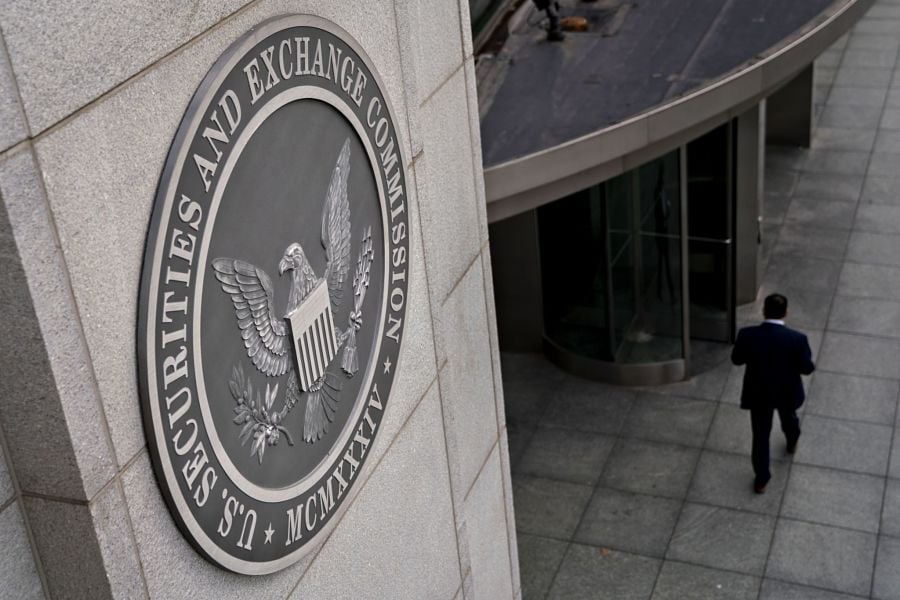

The SEC took the most enforcement actions for violations of securities laws in four years during its latest fiscal year and ordered the second-highest amount of money related to those actions in history, the agency announced Tuesday.
The Securities and Exchange Commission filed 784 enforcement actions in fiscal 2023, a 3% increase over fiscal 2022, and the highest number since fiscal 2019, when it conducted 862 enforcement actions. The agency engaged in 501 stand-alone — or original — enforcement actions, an 8% increase over fiscal 2022.
The SEC achieved the second-highest total amount of financial remedies — $5 billion — in its history in fiscal 2023. That total was eclipsed only by the $6.4 billion it obtained in fiscal 2022. The money ordered in fiscal 2023 comprised $1.6 billion in civil penalties and $3.4 billion in disgorgement. Each of those figures also was the second-highest in agency history.
The enforcement statistics represent the official tally for fiscal 2023, which was released a couple of weeks after SEC Chair Gary Gensler previewed the numbers in a speech in Washington. The agency’s fiscal year runs from Oct. 1 through Sept. 30.
“The investing public benefits from the Division of Enforcement’s work as a cop on the beat,’ Gensler said in a statement Tuesday. “Last fiscal year’s results demonstrate yet again the Division’s effectiveness — working alongside colleagues throughout the agency — in following the facts and the law wherever they lead to hold wrongdoers accountable.”
As a highlight of its enforcement year, the SEC pointed to the $400 million in civil penalties it obtained from investment advisory firms, broker-dealers and credit rating agencies to settle charges that they violated record-keeping rules by failing to monitor their employees’ use of personal devices and messaging apps to conduct business.
The SEC also touted obtaining a total of $850,000 from nine advisory firms that violated the new marketing rule in the way they portrayed hypothetical performance. It also cited a combined $1 million in a civil penalty, disgorgement and prejudgment interest it ordered from Titan Global Capital Management for failing to comply with the marketing rule.
The agency distributed $930 million to victimized investors, a decrease from $937 million in fiscal 2022. Both totals were substantially higher than those achieved in fiscal 2021 ($521 million) and fiscal 2020 ($602 million). The SEC returned $1.2 billion to investors in fiscal 2019.

Chasing productivity is one thing, but when you're cutting corners, missing details, and making mistakes, it's time to take a step back.

It is not clear how many employees will be affected, but none of the private partnership’s 20,000 financial advisors will see their jobs at risk.

The historic summer sitting saw a roughly two-thirds pass rate, with most CFP hopefuls falling in the under-40 age group.

"The greed and deception of this Ponzi scheme has resulted in the same way they have throughout history," said Daniel Brubaker, U.S. Postal Inspection Service inspector in charge.

Elsewhere, an advisor formerly with a Commonwealth affiliate firm is launching her own independent practice with an Osaic OSJ.
Stan Gregor, Chairman & CEO of Summit Financial Holdings, explores how RIAs can meet growing demand for family office-style services among mass affluent clients through tax-first planning, technology, and collaboration—positioning firms for long-term success
Chris Vizzi, Co-Founder & Partner of South Coast Investment Advisors, LLC, shares how 2025 estate tax changes—$13.99M per person—offer more than tax savings. Learn how to pass on purpose, values, and vision to unite generations and give wealth lasting meaning
